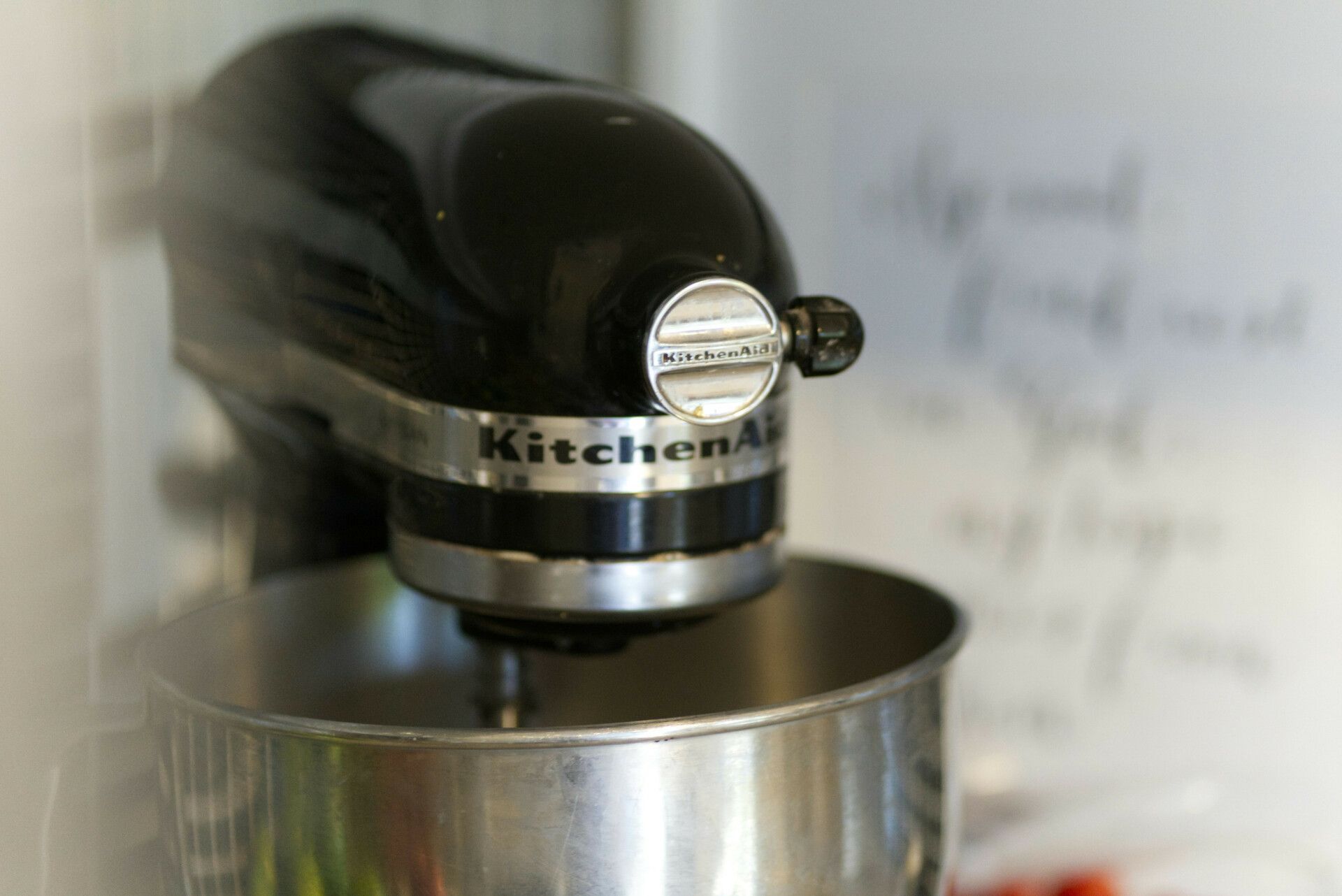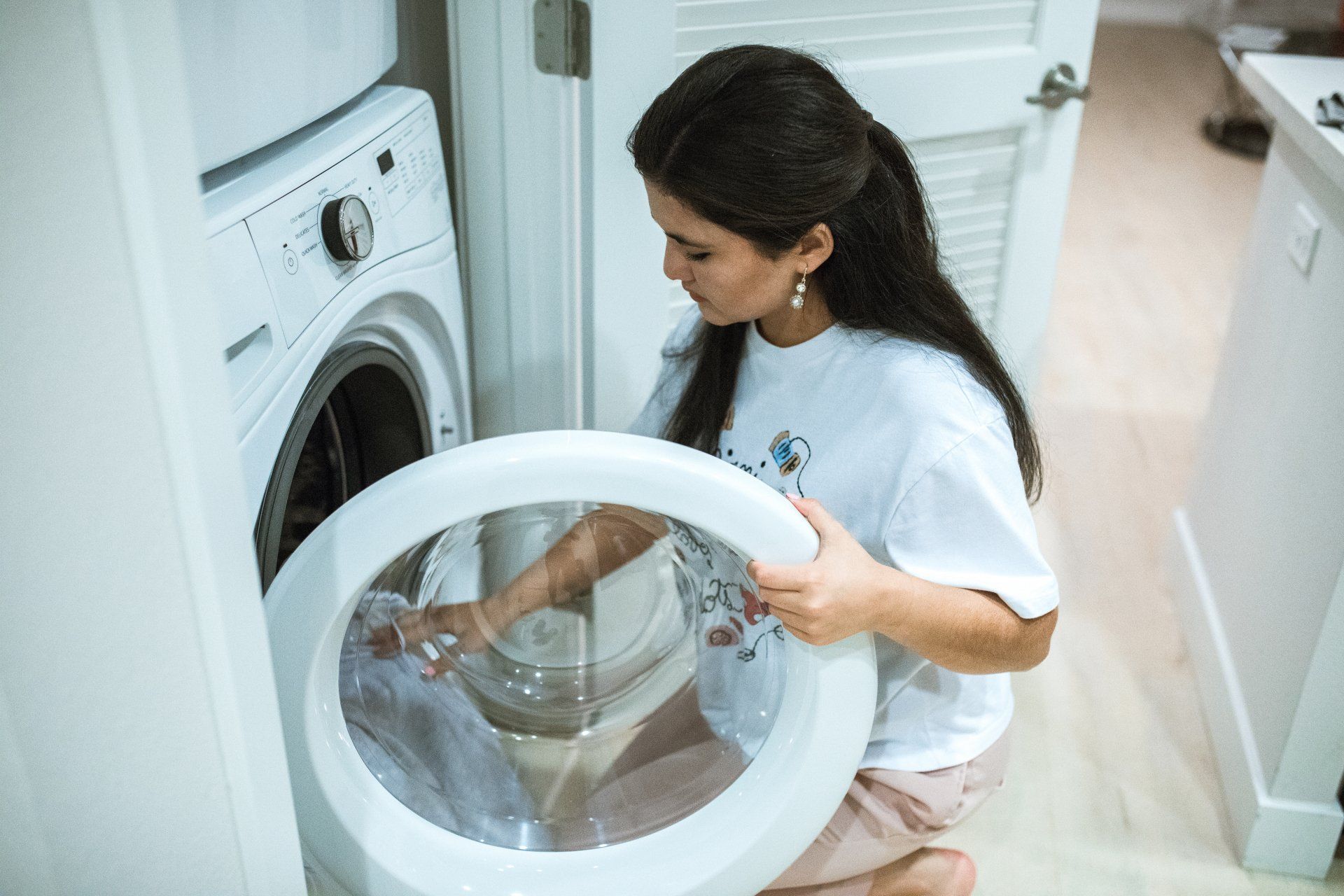Avoid These Common Mistakes to Keep Your Washing Machine Running Smoothly
Nothing quite matches the satisfaction of fresh, clean laundry, especially when it's done effortlessly. However, achieving this pristine result isn't just about loading clothes and laundry detergent into your washing machine and pressing start. It involves understanding the nuances of your machine and avoiding common pitfalls that could lead to costly repairs or inefficient washes. If you're considering purchasing a new washing machine in the UK, understanding these pitfalls is just as important as comparing brands, features and reviews .
Have you ever wondered why your washing machine sometimes coughs out your clothes in less than perfect condition? The answer might lie in some easily avoidable mistakes that many of us make. Let’s explore these mistakes and how you can steer clear of them for a smooth laundry experience.
Choosing the Wrong Detergent
Selecting the correct detergent for your washing machine is more than just picking a brand you recognise. It’s about ensuring your appliance performs optimally and lasts for years to come. A common oversight is using a detergent not suited to your machine's specifications, which can lead to unsatisfactory cleaning results and even damage your machine over time.
The type of detergent you choose has a direct impact on both your machine's health and the cleanliness of your clothes. High-efficiency machines, in particular, require detergents formulated to produce fewer suds. Excessive suds can overwhelm the machine, leading to longer wash cycles and potential mechanical issues. Liquid detergents usually dissolve better in cold water, making them a preferable choice for energy-saving cold washes. On the other hand, powder detergents can sometimes leave residues in the detergent drawer, especially in colder washes.
If you're environmentally conscious, eco-friendly detergents are worth considering. They reduce environmental impact without compromising cleaning power. These detergents are often biodegradable and free of phosphates, making them a smart choice for your home and the planet. By choosing the right detergent, you don't just care for your clothes and machine but also contribute positively to the environment.
Overloading the Machine
It’s tempting to cram as much laundry as possible into a single load. After all, it seems efficient, right? However, overloading your washing machine can be more trouble than it’s worth. It often leads to poor washing results and can seriously damage your appliance.
When you overload your machine, the wash load becomes too heavy, putting undue strain on the motor. This can cause mechanical issues that might require costly repairs. Additionally, an overloaded drum prevents clothes from moving freely, meaning some items may not get cleaned properly. You might find clothes coming out still stained or too wet, which increases drying time and energy consumption.
Large capacity washing machines are designed to handle bigger loads, but even they have limits. Proper load distribution is essential to avoid imbalances during the spin cycle, which can lead to noisy operation and even damage. Using laundry bags can help distribute smaller items more evenly and protect delicate fabrics. Remember, a well-balanced load ensures better washing results and protects your machine from unnecessary wear and tear.
Ignoring Regular Maintenance
Regular maintenance might sound like a chore, but it’s the key to keeping your washing machine in tip-top condition. Ignoring routine checks and cleanings can lead to a decrease in efficiency and potentially costly repairs down the line.
Lint and debris can build up inside your machine, affecting its efficiency and increasing energy usage. Regular cleaning of the drum and detergent drawer can prevent this accumulation and help maintain your machine’s energy rating. It’s also wise to check hoses for leaks or wear, as these can lead to water damage in your home if left unchecked.
Cleaning filters regularly is another maintenance task that shouldn’t be overlooked. Filters catch lint and other debris, preventing them from entering the machine’s system. A clogged filter can lead to water flow issues and inefficient cleaning. So, taking a little time to follow your washing machine manual's maintenance recommendations can save you a lot of hassle and money in the long run.
Using Incorrect Water Temperature
The temperature of the water you use in your washes plays a significant role in the effectiveness of your cleaning. Different fabrics and stains require different water temperatures for optimal results. Ignoring this can lead to clothes that are not as clean as they could be or even damaged.
Cold water is great for energy savings and for washing delicate items that might shrink or fade in hot water. It’s also useful for preserving the colour of bright clothes. However, hot water is often necessary for heavily soiled items, as it can enhance stain removal. Some modern washing machines come with features like Aquatech, which optimises water temperature for various fabrics, ensuring both energy efficiency and effective cleaning.
Detergents also play a part in this. Some are specifically formulated to work best at certain temperatures, so it’s essential to check the recommendations on the detergent package. Understanding the right temperature for your laundry helps maintain the quality of your clothes and optimises your washing machine’s performance.
Neglecting to Clean the Drum
A clean drum is essential for a hygienic and efficient washing machine. Neglecting to clean it can lead to unpleasant odours and affect your washing results. Soap scum and residue can accumulate over time, reducing your machine's performance and potentially leading to mould growth.
Regular drum cleaning prevents these issues and can extend the life of your washing machine. Leaving the drum open after use allows it to air out, preventing moisture build-up, which can lead to mould and bacteria growth. Regularly running a hot wash with a suitable cleaning agent can help keep the drum clean and odour-free.
A clean drum isn't just about cleanliness; it’s about ensuring your clothes come out smelling fresh and looking spotless. By making drum cleaning a regular part of your laundry routine, you’re safeguarding your machine’s longevity and the quality of your washes.
Not Using the Correct Spin Cycle
The spin cycle you select can greatly influence both the results of your wash and the energy consumption of your machine. Different fabrics require different spin speeds, and selecting the wrong one can lead to damaged clothing or inefficient washing.
Delicate items, for instance, benefit from a slower spin speed, which helps prevent wear and tear. On the other hand, a higher spin speed can reduce drying time by extracting more water from the clothes, which is particularly useful for thicker fabrics. Choosing the right spin speed can improve the overall efficiency of your washing machine and contribute to energy savings.
Modern machines often come with a variety of spin speed options, so it's worth familiarising yourself with them. Using the correct spin settings ensures that your clothes are cared for properly and that your machine operates efficiently. So next time, before you press start, take a moment to select the appropriate spin cycle for your load.
Using Too Much or Too Little Detergent
The amount of detergent you use can significantly affect your washing results and the longevity of your washing machine. Both using too much and too little have their drawbacks, and finding the right balance is crucial.
Excess detergent can lead to residue build-up inside your machine, which can cause issues over time. This build-up can affect the machine's performance and lead to unpleasant odours. On the flip side, using too little detergent might not clean your clothes effectively, leaving stains and odours behind.
Following the detergent package recommendations is a good starting point for determining the right amount for your wash load. Keep in mind that factors like water hardness and the level of soil on your clothes can also influence the amount needed. Striking the right balance keeps your machine running smoothly and your clothes looking fresh.
Ignoring Energy Efficiency Ratings
Energy efficiency ratings are more than just a selling point; they can have a substantial impact on your utility bills and environmental footprint. Efficient washing machines use less electricity and water, which can translate to significant savings over time.
When you're shopping for a new machine, pay attention to these ratings. They help identify machines that provide the best performance per unit of energy, ensuring you're getting the most bang for your buck. While energy-efficient models might have higher upfront costs, they often save money in the long run through reduced utility bills.
Choosing a machine with a good energy rating is also an environmentally conscious choice. It means you're doing your part to reduce energy consumption and greenhouse gas emissions. So, when you're comparing different brands and models, consider the long-term savings and environmental benefits of energy-efficient machines.
In conclusion, keeping your washing machine running smoothly is not rocket science, but it does require some attention to detail. By avoiding these common mistakes, you can enjoy the benefits of a reliable and efficient appliance for years to come. Are there other laundry habits you think might be impacting your washing machine's performance? Share your thoughts and experiences in the comments below!
Frequently Asked Questions
How often should I clean my washing machine?
We recommend cleaning your washing machine every 1-3 months to prevent build-up of dirt, grime, and mould. Regular cleaning helps maintain the efficiency and longevity of your machine.
What type of detergent should I use in my washing machine?
It is essential to use a high-quality, low-sudsing detergent specifically designed for washing machines. Avoid using excessive amounts of detergent as it can lead to residue build-up and damage the machine.
Can I wash all types of clothing in my washing machine?
While most clothing items can be safely washed in a washing machine, delicate items such as silk, wool, and lace require special care. Always check the care label on your clothes before washing them in the machine.
Why is my washing machine making loud noises during the spin cycle?
Loud noises during the spin cycle can be caused by unbalanced loads, worn-out bearings, or loose components. Make sure to distribute the laundry evenly in the drum and avoid overloading the machine to prevent excessive noise.
How can I prevent my washing machine from developing a musty smell?
To prevent your washing machine from developing a musty smell, always leave the door open after each use to allow air circulation. Additionally, run a cleaning cycle with vinegar or baking soda once a month to eliminate any odours and bacteria.























